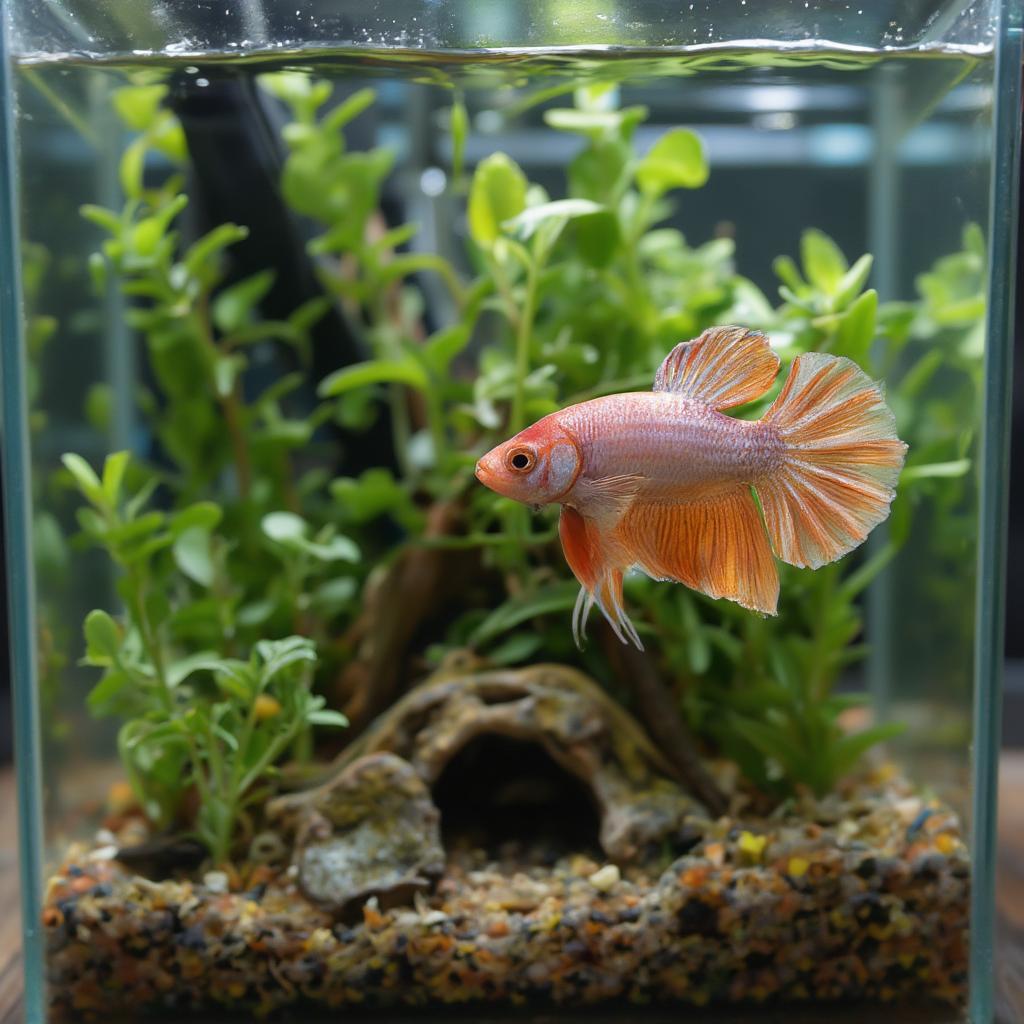Does My Betta Fish Love Me? It’s a question many betta owners ponder as they watch their vibrant, finned companions swim gracefully in their tanks. While bettas may not express love in the same way humans do, they can form bonds with their owners and show signs of recognition and affection. Let’s dive into the fascinating world of betta behavior and explore the ways these intelligent creatures interact with the humans who care for them.
Understanding Betta Behavior
Betta fish, also known as Siamese fighting fish, are known for their striking colors and flowing fins. They are native to the shallow rice paddies and slow-moving streams of Southeast Asia. In the wild, bettas are territorial creatures, often displaying aggressive behavior towards other males. This territorial instinct is still present in domesticated bettas, which is why it’s important to house them individually.
Signs of a Happy and Healthy Betta
A happy and healthy betta will exhibit a variety of behaviors, including:
- Active swimming: A betta that explores its tank, swims to the surface for air, and interacts with its environment is generally a content fish.
- Vibrant colors: Bright, vibrant colors are a sign of good health and well-being in bettas.
- Healthy appetite: A healthy betta will readily eat its food, typically pellets or flakes designed specifically for bettas.
- Building bubble nests: Male bettas will build bubble nests at the surface of the water, even without a female present. This is a natural instinct and a sign of a healthy, happy male.
Does Your Betta Recognize You?
While bettas may not express love in the human sense, they can recognize their owners. They are intelligent creatures capable of learning and associating specific people with positive experiences, such as feeding time.
Signs Your Betta Might Recognize You
- Swimming towards you: If your betta swims towards you when you approach the tank, it could be a sign of recognition and anticipation, especially if you are the one who usually feeds them.
- Flaring fins: While fin flaring can be a sign of aggression, it can also be a display behavior used to impress or greet a familiar face.
- Following your finger: If your betta follows your finger as you move it along the outside of the tank, it demonstrates an interest in you and a level of interaction.
How to Bond with Your Betta Fish
Building a bond with your betta fish involves creating a positive and stimulating environment for them.
- Provide a suitable tank: A spacious tank with plenty of plants, hiding places, and a consistent water temperature is essential for a happy betta.
- Offer a varied diet: Feeding your betta a high-quality diet of betta pellets, supplemented with occasional treats like bloodworms or brine shrimp, will keep them healthy and satisfied.
- Interact with your betta: Spend time observing your betta and engaging with them by moving your finger slowly along the tank or offering them small toys designed for bettas.
 Betta Fish in a Planted Tank
Betta Fish in a Planted Tank
Conclusion
So, does your betta fish love you? While they might not experience love in the same way humans do, they can certainly form bonds with their owners and show signs of recognition and affection. By providing a stimulating environment, a healthy diet, and regular interaction, you can foster a positive relationship with your betta and enjoy the companionship of this fascinating and beautiful creature. Remember, understanding your betta’s behavior is key to appreciating the unique way they interact with the world around them, including you.
FAQ
- How can I tell if my betta is happy?
- Can I keep two bettas together?
- What should I feed my betta?
- How often should I clean my betta’s tank?
- What are the signs of a sick betta?
- How long do bettas typically live?
- Can I train my betta?
Situations Involving Frequently Asked Questions
- Betta not eating: This could indicate illness, stress, or unsuitable water parameters.
- Betta hiding constantly: A new environment, aggressive tank mates (if any), or illness could cause this behavior.
- Betta’s colors fading: This could be a sign of stress, aging, or disease.
Suggested Further Reading on DaiDuongTranhBa
- Betta Fish Care: A Comprehensive Guide
- Understanding Betta Fish Behavior
- Creating the Perfect Betta Tank
Contact us at Email: contact@daiduongtranhba.com, address: Michigan Ave, Suite 3100, Chicago, IL 60611, USA. We have a 24/7 customer service team.


